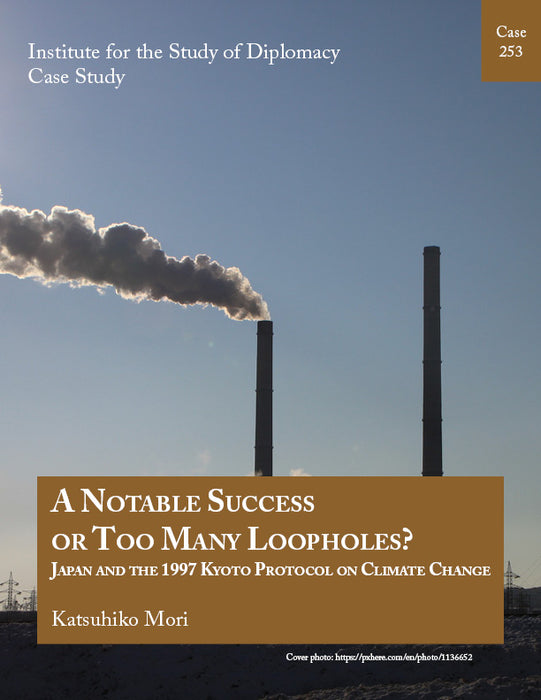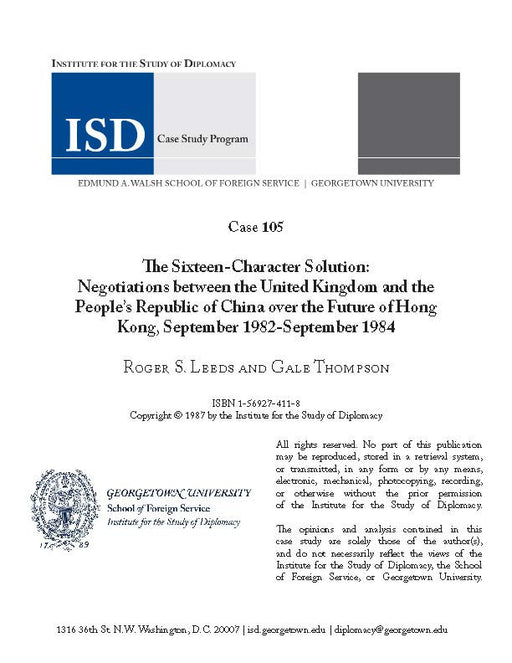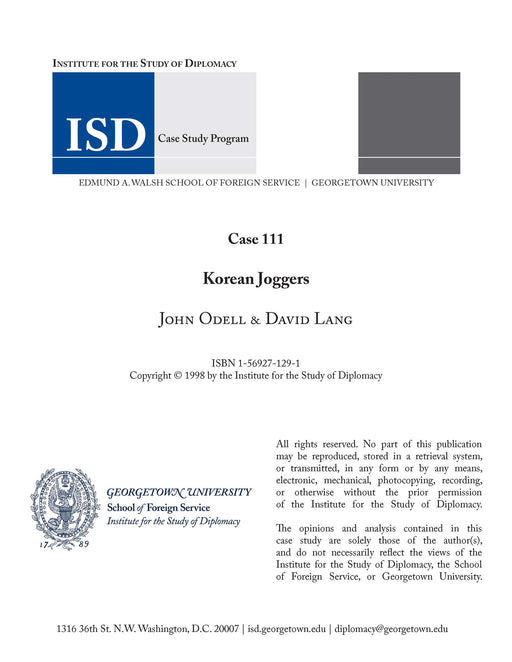Case 253 - A Notable Success or Too Many Loopholes? Japan and the 1997 Kyoto Protocol on Climate Change
Mori, Katsuhiko
This two-part case study explores the possibilities and limits of Japan’s leadership role in the global political economy. As the host of the Third Conference of the Parties to the United Nations Framework Convention on Climate Change, Tokyo was tasked with reconciling differences, at home and abroad, over the key issues for the Kyoto Protocol to be adopted in December 1997. This task is viewed through the perspective of Shohei Yonemoto, a member of the Committee on the Global Environment of the Ministry of International Trade and Industry’s Industrial Structure Council. His dilemma: As a leading member of an environmental nongovernmental organization, he favors a significant reduction in greenhouse gas emissions. Yet as an employee of Mitsubishi, he has to take into account the concerns of company executives with regard to economic competitiveness.
This study is suitable for courses in international political economy, foreign policy analysis, or Japan studies. It could also be used for professional training in government agencies and companies involved with global environmental issues.



